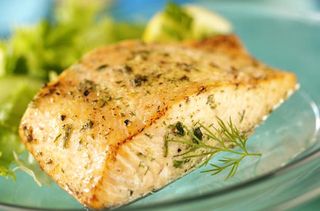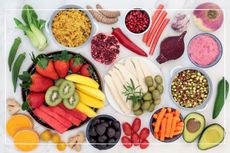High-protein diet 'as bad as smoking 20-a-day'
Shocking new research has shown that eating a diet rich in protein from animals could increase your risk of cancer as much as smoking...

We've been hearing today about the worrying statistic that eating a protein-rich diet is almost as bad for you as smoking 20 cigarettes a day, in terms of your risk of developing cancer.
The link between red meat and cancer has long been known about but a recent study has shown that the link may in fact be more widespread amongst protein in general. The University of Southern California found that protein from animals in particular carried higher risks to health, such as red meat and eggs.
The American research which has been published in the journal Cell: Metabolism, looked at thousands of adults for almost 20 years and found that those eating a protein-rich diet are a whopping four times more likely to die of cancer than someone following a low-protein diet. They were also found to be more likely to develop diabetes.
The study defined a high-protein diet as one where 20% of the calories come from protein.
We spoke to Atkins, the popular high-protein diet plan, to get their response on the study. They said, 'The sample used in the research consumed a high percentage of carbohydrates (51%) at the same time as protein, meaning this isn't representative of those who follow Atkins, who are advised to take less than 10% of their calories from carbohydrates.'
Dr Eileen Crimmins, who co-authored the study, said, 'The research shows that a low-protein diet in middle age is useful for preventing cancer and overall mortality.'
However, some experts have said comparing eating red meat and other protein to smoking could be putting across a dangerous message by making people think that there's no point in giving up smoking if their scrambled eggs are more likely to give them cancer than the cigarettes.
GoodtoKnow Newsletter
Parenting advice, hot topics, best buys and family finance tips delivered straight to your inbox.

Salmon fillets, while considered a healthier source of protein, still account for 40% of your recommended daily intake.
It's also worth noting that on the other hand, the study suggested there are benefits to eating plenty of protein in later life. Dr Crimmins said: 'We also propose that at older ages, it may be important to avoid a low-protein diet to allow the maintenance of healthy weight and protection from frailty.'
Sources of protein like fish, chicken, grains, pulses and vegetables are considered to be the healthier options.
Ever get the feeling that just when one study tells you one thing, another will tell you the opposite? Would findings like this make you likely to eat less protein, or do you think they're just another statistic not to worry about? Leave us your thoughts in a comment below.
Looking for some healthy protein options without meat? Try making this chickpea and sweet potato curry, or this delicious vegetarian chilli.
Where to next?
- The Mediterranean Diet
- Sugar shockers - you won't believe how much of it is in our everyday food
- Vegetarian Diet
Gemma Chandler is a lifestyle writer specialising in kids' educational media across a range of topics including nature, history, science and geography across digital, print, social media and video channels. She joined Creature & Co. at 2015, shortly becoming Digital Editor of National Geographic Kids magazine.
-
 Why do I crave sugar? Causes of sugar cravings and how to stop them
Why do I crave sugar? Causes of sugar cravings and how to stop themIf you're someone who suffers from sugar cravings you'll know how hard it is to give up the sweet stuff. But you're not alone.
By Debra Waters Published
-
 Low sodium diet: the benefits of reducing salt and what foods to eat
Low sodium diet: the benefits of reducing salt and what foods to eatBy Emily-Ann Elliott Published